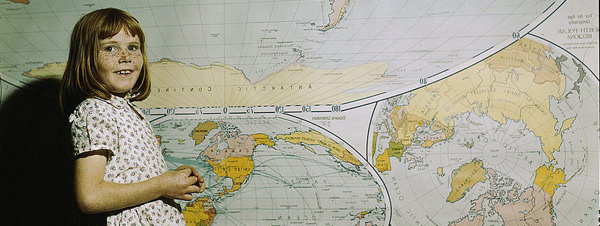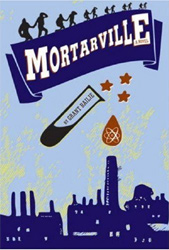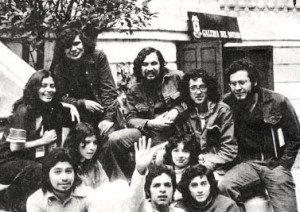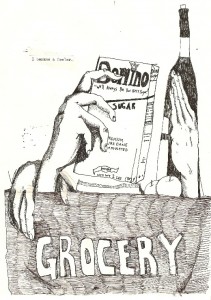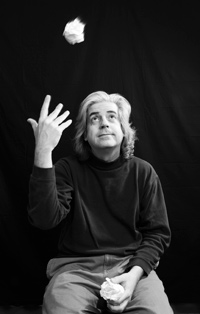 Michael Martone was born in Fort Wayne, Indiana, and grew up there. As Fort Wayne was the site of, at least, nine forts (three each of French, British, and American fortifications, not to mention fortified villages of the Shawnee and Miami tribes), there was fostered in Martone a keen attraction to walls, fences, barriers of all kinds so much so that he was marked (as he matured) with what can only be thought of as a fetish for such structures which now (years later) expresses itself in his vast collection of examples he displays at his West End house in Tuscaloosa, Alabama. There, the visitor might find field stone walls (dry and mortared, finished and rough), vertical wood-picket fences with various finials and knurls, bamboo stave, horizontal clapboard running fence (reproduced in crosshatching or herring bone patterns), chain-link cyclone mesh, chicken wire, wrought-iron worked, brick, concrete block, red cedar plank snow-fencing, a four yard section of the right field fence bought at auction during the demolition of Yankee Stadium, corrugated galvanized steel, split-rail, adobe, dry-wall, wattle and beam, electrified, a slab from the Berlin wall with graffiti spelling out “wall” in German, and several versions of “invisible” pet fencing. Martone has a real fondness for star fortification (also known as trace italienne) and has in his backyard reconstructed the walled city of Neuhasel in Lower Hungry with its ravelins and redoubts, bonnettes and lunettes and tenailles and tenaillons and counterguards and crownworks hornworks and curvettes and fausse brayes and scarps and cordons and banquettes and counterscarps and the long grassed glacis suitable for picnics. He also has the largest collection of barbed wire in west central Alabama, including an example of contemporary razor and concertina wire. Martone has also written the authorized biography of Joseph F. Glidden (of DeKalb, Illinois), widely regarded as the man who perfected Lucien B. Smith’s original design of the famous agricultural fencing.
Michael Martone was born in Fort Wayne, Indiana, and grew up there. As Fort Wayne was the site of, at least, nine forts (three each of French, British, and American fortifications, not to mention fortified villages of the Shawnee and Miami tribes), there was fostered in Martone a keen attraction to walls, fences, barriers of all kinds so much so that he was marked (as he matured) with what can only be thought of as a fetish for such structures which now (years later) expresses itself in his vast collection of examples he displays at his West End house in Tuscaloosa, Alabama. There, the visitor might find field stone walls (dry and mortared, finished and rough), vertical wood-picket fences with various finials and knurls, bamboo stave, horizontal clapboard running fence (reproduced in crosshatching or herring bone patterns), chain-link cyclone mesh, chicken wire, wrought-iron worked, brick, concrete block, red cedar plank snow-fencing, a four yard section of the right field fence bought at auction during the demolition of Yankee Stadium, corrugated galvanized steel, split-rail, adobe, dry-wall, wattle and beam, electrified, a slab from the Berlin wall with graffiti spelling out “wall” in German, and several versions of “invisible” pet fencing. Martone has a real fondness for star fortification (also known as trace italienne) and has in his backyard reconstructed the walled city of Neuhasel in Lower Hungry with its ravelins and redoubts, bonnettes and lunettes and tenailles and tenaillons and counterguards and crownworks hornworks and curvettes and fausse brayes and scarps and cordons and banquettes and counterscarps and the long grassed glacis suitable for picnics. He also has the largest collection of barbed wire in west central Alabama, including an example of contemporary razor and concertina wire. Martone has also written the authorized biography of Joseph F. Glidden (of DeKalb, Illinois), widely regarded as the man who perfected Lucien B. Smith’s original design of the famous agricultural fencing.
Q (Meg Pokrass): What story or book of your own do you feel closest to?
I like “The Sex Life of the Fantastic Four.” I am not sure I can ever publish it, so I read it publicly a lot and like to go through it that way. Someone else? William Gass’s “In the Heart of the Heart of the Country” no contest.
Do you have a mentor?
Yes, several. One–John Barth.
How do you stay creative? What are your tricks to get “unstuck?”
Another mentor–William Stafford. He says: Stuck? Lower your standards.
What are your favorite websites?
Museum of Jurassic Technology
Personas/Metropath(ologies)
Trains Magazine
The Dan Quayle Museum and Vice Presidential Center
What are you working on now?
I am finishing a book of mini-collages called Four For a Quarter, a book of science fiction called Amish in Space, a collaborative project called Winesberg, Indiana, and a book of interviews (I hope this one will be part of) called You Can Say That Again.
Which songs do you currently love?
“Assassins,” Stephen Sondheim
Leonard Cohen in concert
Seferis’s song “Denial”
“California” by Joni Mitchell
What was your favorite elementary school teacher like?
His name was John Flora, 6th grade, Price Elementary. He was like Dick Van Dyke of the Dick Van Dyke Show, not of Mary Poppins or Bye Bye Birdie.
What are your five favorite works of art?
The Photos of O. Winston Link
Andy Warhol (I mean Andy Warhol not his paintings or prints)
The Boxes of Joseph Cornell
The Quilts of Gees Bend
The design of Loewy, Dreyfuss, Eames, Wright
What are your favorite buildings?
The Quonset Hut
The Four-Square House
The work of The Rural Studio
The four houses designed by Michael Graves in Fort Wayne, Indiana
Which book do you wish you’d written?
Amateurs by Donald Barthelme
What do you love about where you live?
The Emergency Barber Shop
The Moon Winx Lodge
Dreamland
Kudzu
Do you have a pet?
I have always wanted a draft horse-Percheron, Belgium, Shire, or Clydesdale — in that order.
Why are people often afraid of trying?
A failure of the imagination?
If you had a prop that you carried with you every day, what would it be?
A hat–Borsalino Fedora, an Italian boater, a bowler, or a campaign hat.
or
Kumboloi (Greek worry beads).
or
A folding chair of some kind.
or
A Mercury dime.
The Fictionaut Five is our ongoing series of interviews with Fictionaut authors. Every Wednesday, Meg Pokrass asks a writer five (or more) questions. Meg is an editor at Smokelong Quarterly, and her stories and poems have been published widely. She blogs at http://megpokrass.com.

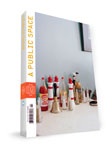

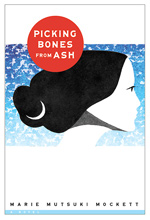
 I stop feeling creative when some other part of the world–that thing called reality–gets in the way. You know. My agent pointing out that I don’t have much of a sales record. An editor rejecting me because she “already has one half-Asian writer” whom she couldn’t figure out how to market. McNally Jackson in Soho inviting me to read, and then uninviting me (that’s my favorite story right now). These kinds of things are depressing because they don’t have to do with writing, and they demonstrate just how much crap writers have to battle, just to get their work out. But eventually, my mind wanders off somewhere and I have some new idea, or observe something new in the world, and then I want to write it down, and somehow I end up slogging through the muck. I don’t seem to be able to escape the impulse to write.
I stop feeling creative when some other part of the world–that thing called reality–gets in the way. You know. My agent pointing out that I don’t have much of a sales record. An editor rejecting me because she “already has one half-Asian writer” whom she couldn’t figure out how to market. McNally Jackson in Soho inviting me to read, and then uninviting me (that’s my favorite story right now). These kinds of things are depressing because they don’t have to do with writing, and they demonstrate just how much crap writers have to battle, just to get their work out. But eventually, my mind wanders off somewhere and I have some new idea, or observe something new in the world, and then I want to write it down, and somehow I end up slogging through the muck. I don’t seem to be able to escape the impulse to write.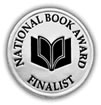
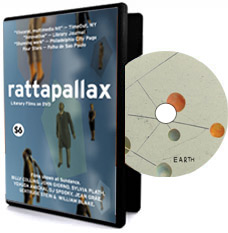

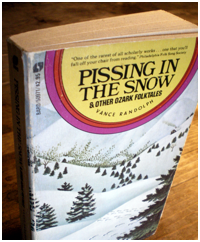 Pissing in the Snow by Vance Randolph was originally published by the University of Illinois Press in 1976, and reissued as a rack-sized mass-market paperback by Bard in 1977. In the late seventies, it was a best seller. The edition I have has a roller-rink-style ring of concentric circles around the title on a yellow background. It shows sparsely forested slopes with tracks in the snow. You can buy a copy from Amazon for a penny.
Pissing in the Snow by Vance Randolph was originally published by the University of Illinois Press in 1976, and reissued as a rack-sized mass-market paperback by Bard in 1977. In the late seventies, it was a best seller. The edition I have has a roller-rink-style ring of concentric circles around the title on a yellow background. It shows sparsely forested slopes with tracks in the snow. You can buy a copy from Amazon for a penny.